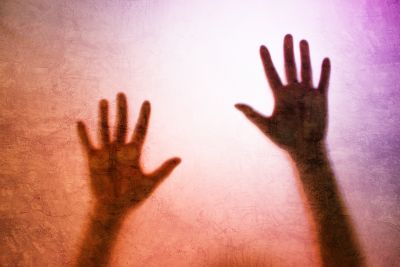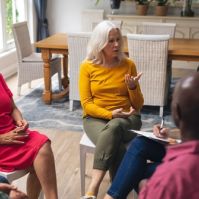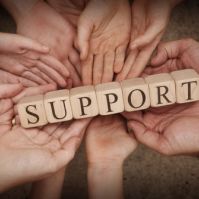 The ULC supports many charitable organizations, including the National Coalition Against Domestic Violence. Our blogs often focus on what you can do to prevent domestic violence and to educate you about domestic violence. Today, we’d like to highlight recovery. Many people leave a violent situation and go on to live a successful life, even though they deal with the emotional trauma.
The ULC supports many charitable organizations, including the National Coalition Against Domestic Violence. Our blogs often focus on what you can do to prevent domestic violence and to educate you about domestic violence. Today, we’d like to highlight recovery. Many people leave a violent situation and go on to live a successful life, even though they deal with the emotional trauma.
“It's so important to raise awareness of (domestic violence) that continues to affect 1 in 4 women at some point in their lifetime, regardless of career, wealth or background.”
–Anna Friel
Recovery in Abuse
For someone in an abusive relationship, it’s difficult to find recovery until you leave. Imagine if you had cut your finger with a knife. The wound might heal a little overnight, but then you cut the same place open again. You keep doing this for days on end. Your finger cannot regain its strength until it has the time to heal. Emotional trauma is no different. It’s highly improbable that you can gain complete recovery from abuse until the abuse stops.
At this stage, some of the best things you can do for yourself are:
- Build a support network of friends, family and local resources
- Educate yourself on abuse
- Meditate
- Talk to your doctor about depression and anxiety
- Make a safety plan
Leaving the Abuser
Once you leave the abuser, life won’t go back to normal right away. Processing a traumatic experience is going to take time, but don’t lose heart. Most survivors go through three stages in recovery.
Safety and Stabilization
After a trauma, you may not feel safe. And unfortunately, in a domestic violence situation, the threat of harm may be very real, even though you have left the abuser. Get into therapy with a professional. Find relationships that are encouraging, not diminishing. Find ways to deal with your emotions, which are probably going to be all over the place while you’re stabilizing.
- Stop denying and minimizing your feelings
- Start identifying as a survivor
- Don’t blame yourself for the abuse
- Take responsibility for your present choices
- Stop isolating yourself
Mourning and Grief
You need time to grieve, even a bad relationship. You may need to grieve what you hoped the relationship would become. This stage can be overwhelming, so continue in therapy. Get creative by journaling, drawing or any creative outlet. Take care of yourself by eating well, exercising and getting enough sleep. Try not to let yourself get stuck in this stage, but don’t ignore your feelings either. Make sure to stay connected to close friends and family.
Reconnect With Others
Many people, especially in the first weeks of surviving an abusive relationship, tend to disconnect from society. The third stage in recovery is getting involved and integrating with others around you. It’s not about finding another lover, but making meaningful friendships and finding your new life. Volunteering is a good way to explore new interests and to find purpose.
Recovery Is Possible
The healing process is just that, a step-by-step process. It’s not a journey you can make on your own. Fortunately, there are many resources available to help people take that first step of moving from abused to survivor. The NCADV is a good place to start if you are in or know someone in an abusive relationship. You may not be able to leave today, but you can start to make a plan to have a safe life.
Recovery from emotional trauma is not easy. There’s no timeline that says if you do this, this and this, then you’ll be over it. Understanding that domestic violence survivors don’t heal in the same way will help you be more empathetic.



